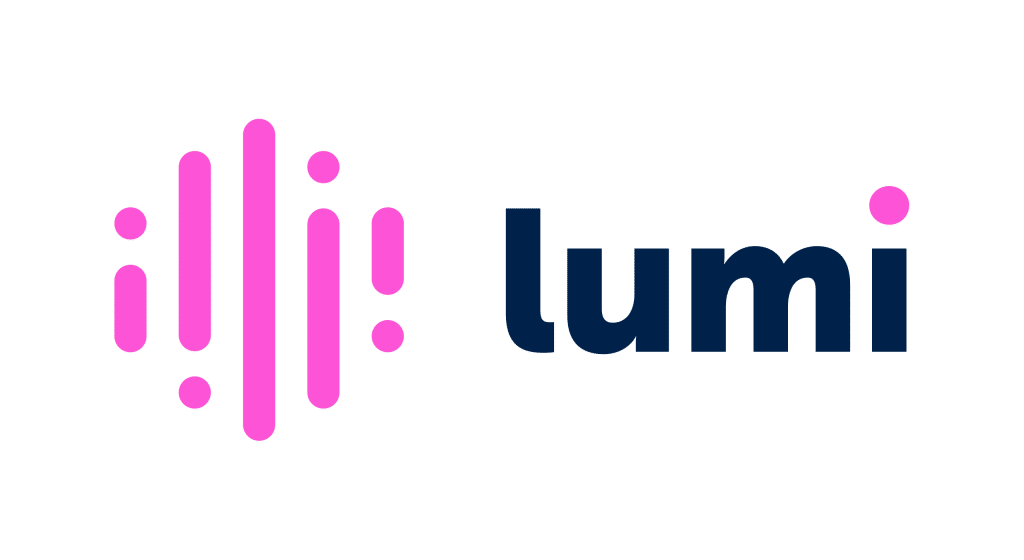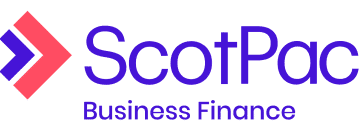Home > Business Loans > Tax Debt Loans
Tax Debt Loans
Compare rates to help you find the best possible tax debt loan for your business' needs.
Author
Savvy Editorial TeamFact checked








Cash flow is important for businesses and debts like unexpected tax bills can seriously affect your day-to-day finances. Fortunately, Australians have a variety of tax debt loans to consider. Find out more about your available options and compare a range of business loans all in one place with Savvy today.
How do tax debt loans work?
Tax debt loans are short-term loans to assist small to medium businesses in paying debts outstanding to the Australian Taxation Office (ATO). Repayment terms can often be more flexible than with other loans and business owners can monitor the loan and repayments and pay the loan off more quickly or slowly depending on their cash flow. The maximum you can borrow and the period over which you can repay your loan will vary depending on the type of loan. In addition to settling tax debts, businesses can also utilise tax debt loans for other business expenses such as salaries, inventory and paying separate outstanding bills.
There are many financial institutions that offer tax debt loans to businesses that need a helping hand to pay off their outstanding debts. The approval process for these loans does not take long and you will generally receive an answer within 24 to 48 hours. If approved, funds will usually be deposited directly into your bank account within 24 hours of approval. You’ll need to supply documents such as your tax returns, as well as other business documents potentially such as BAS and profit and loss statements, as part of your application.
What are my tax debt loan options?
There are several different types of tax debt loans that you will have available to you. When deciding on which one to go with, you can start by comparing the following:
Short-term business loans
These types of loans are usually provided when businesses fall into unexpected trouble. They are ideal for tax debts and other unexpected expenses. These loans typically need to be paid back within 6 to 18 months.
Unsecured business loans
An unsecured business loan does not require you to provide any form of security such as residential or commercial property as collateral. These types of loans are considered to be higher risk by the lender and generally incur a higher interest rate. Loan amounts are generally from $1,000 to $300,0000 with loan terms ranging from three months to three years. Unsecured loans are sometimes better for small businesses who lack assets to be used for security.
Secured business loans
Assets such as property or equipment are used as security against these types of loans. If loan payments are not met the lender can take ownership of the asset to cover the cost of the loan. These terms are viewed by financiers as lower risk and will generally offer you more favourable terms such as the ability to borrow a greater amount along with lower interest rates. Loan amounts differ between lenders and generally range from $10,000 to $10,000,000. Terms usually range from one year to 10 years.
Also, the ATO may approve a payment arrangement where you can pay off the debt over time. The length of the loan term varies depending on your circumstances, and payment arrangements are not always granted. This involves an upfront payment and then further weekly, fortnightly or monthly payments to be paid by direct debit to the ATO, which appears on your credit score.
What types of tax debt are most likely to be approved for a loan?
The reason that you are needing a loan to pay tax debt will be considered by the lenders when you apply for a loan. Some of the most common scenarios, and their likelihoods of achieving approval, are:
Error in calculating taxes – If your accountants have made a one-time error when preparing your BAS, or income tax return, the lenders will be more receptive to your situation. They should be able to see that this is not an error made by you.
Capital Gains Tax (CGT) debt – If you have incurred a tax debt due to profit made from sale of property, finance lenders may be more likely to approve your tax debt loan. You are seen to be more in control of your finances, as this is likely to only happen once.
Rapid business growth – If your business experiences unexpectedly rapid growth and are forced to exhaust your cash flow reserves to keep up, you may find yourself in a difficult situation. Lenders will look kindly on circumstances like these.
Your business is stable – If you’ve been running your business for a while and its revenue has been positive and consistent, your tax debt application is more likely to be successful than that of a new business who hasn’t had much time to settle.
Types of business loan
The most common type of business finance, unsecured loans enable businesses to access the funds they need without attaching an asset to the loan as security. Some lenders may allow you to borrow up to $500,000 and, because there's no collateral, offer same-day approval.
If your business already owns valuable assets, such as property or expensive equipment, you may choose a secured business loan instead. These loans may increase your borrowing power beyond what an unsecured loan can offer and, crucially, typically come with lower interest rates.
Business loans don't always have to be worth hundreds of thousands. If you're operating a small business and need a boost to help you keep on top of your expenses or expand your company, you may be able to take out a loan starting from as little as $5,000 and unlock further capital.
Just because you don't have all the required documents for a standard business loan doesn't mean you're out of options. Low doc finance enables you to use alternative documentation, such as other business financials, in the application process to access the funds you need.
A commercial line of credit allows you to draw from your loan account whenever your business needs access to their funds, instead of managing a lump sum and repaying it like a regular loan. This can add flexibility to your finance arrangement, providing money when you need it.
Invoice finance presents another option to business operators looking to free up cash through outstanding invoices yet to be paid by their customers. Your invoice finance can either be invoice discounting or factoring, which present different options when it comes to your invoices.
A common reason for seeking out a loan is to purchase commercial equipment. You can do this either with an unsecured arrangement or one with the equipment itself as collateral, with the latter potentially increasing your borrowing power and lowering your interest rate.
With this finance, when your business purchases product, your supplier provides an invoice which you send to your financier and pledge to repay by a set date. From there, your supplier sells the invoice to your financier at a discounted rate, while you repay the full amount to your financier.
Under an inventory finance agreement, your lender pays your supplier directly for inventory, which allows it to be signed off and sent to you. From there, you can pay off your debt within a pre-determined period to your lender, which may be longer than the regular debtor period.
An overdraft facility is attached to an existing financial account belonging to your business, such as a transaction or savings account, and enables you to borrow up to a set limit after the account’s balance reaches zero. These overdrafts are repaid with interest, but only on what you use.
You may simply be in a position where your business needs a boost to its cash flow. If this is the case, there’s a range of stop-gap solutions which may be suitable for your situation, from standard unsecured loans to specialist cash flow loans, invoice finance or even an overdraft.
Why compare business loans through Savvy?
100% free service
It won't cost you a cent to compare a range of business loans through Savvy, enabling you to come back at any time.
Reputable lending partners
You can compare business loan offers through a range of trusted Australian lenders, giving you more confidence in the process.
Online comparison process
You can fill out our simple online form to generate business finance quotes tailored to your business' needs in minutes.
Explained: fees to avoid when looking for the best tax debt loan
Monthly fees
Many banks and finance companies charge an account keeping fee when you take out a tax debt or business loans. These are charged every month on top of your interest payment. Account keeping fees are on average $10-$15 per month for this type of loan.
Application fees
The majority of lenders charge an application fee when you are approved for a tax debt loan. This can also be called a start-up fee, upfront fee or establishment fee. This is a once-off fee that the lender charges to set up the loan. These can be anywhere up to $990.
Bank fees
Bank fees are payable in a number of circumstances. These can include fees for:
- Late payments
- Missed payments
- Customer assisted transactions (i.e., for payments made over the counter at the bank or finance company)
- Loan re-draw fees, where the ability to redraw is a feature of your loan
Discharge fees
If you pay out your loan early, you may be liable for an early payout, or discharge fee. The average discharge fee for a business loan is $335.
Frequently asked questions about tax debt loans
While the interest rate is important and will affect your payout figure, there are other factors to consider in an ATO debt loan. The loan term, payment flexibility, fees and minimum and maximum loan amount and repayment term all need to be taken into account.
While extending your mortgage can seem like a good idea, using the equity in your home to finance a tax debt can mean that you pay more in interest over the term of your home loan. A separate tax debt loan is a more flexible loan arrangement. You can easily monitor the interest you are paying on your tax debt, and pay the loan out in its entirety when you are ready. Lenders also understand that your income will not be the same every month. Many tax debt loans allow you flexible payment arrangements to work in with your cash flow.
Your house can be taken as security. Many lenders require security in the form of real estate for ATO tax debt finance. However, if you’re looking for a smaller secured tax debt loan, a vehicle like your car may suffice as security. That being said, there are many unsecured lenders that you can compare with Savvy that can provide short term business funding without security.
Yes – as options are quite limited for tax debt financing, and given the likelihood of applying for an unsecured loan, your application is likely to cost a reasonable amount in interest and fees. However, tax debt loans are solutions to a problem, which means that it’s better for you to sort out your tax debt with a loan that you repay with added costs than sit on your debt and incur penalties from the ATO.
In short, no. Many banks do not offer loans specifically to fund tax debt. While some banks offer business loans for this purpose, the loan does not generally have the flexibility that comes with a loan designed specifically to fund ATO debt. There are, however, many independent lenders who fund these types of loans.
- Banks – banks offer loans of all types to businesses and individuals. While they may offer cheaper rates for certain types of loans and special discounts to existing customers, lending criteria is usually stricter than other lenders.
- Specialist online lenders – specialist online lenders are an alternative to banks that many tax debt borrowers prefer. As their lending criteria is more lenient and they’re flexible when it comes to offering their loans, you’re most likely to be approved for a loan with a specialist online lender.
Still looking for the right finance for your business?
Explore a range of business loan options suitable to your financing needs and apply online through Savvy today.
